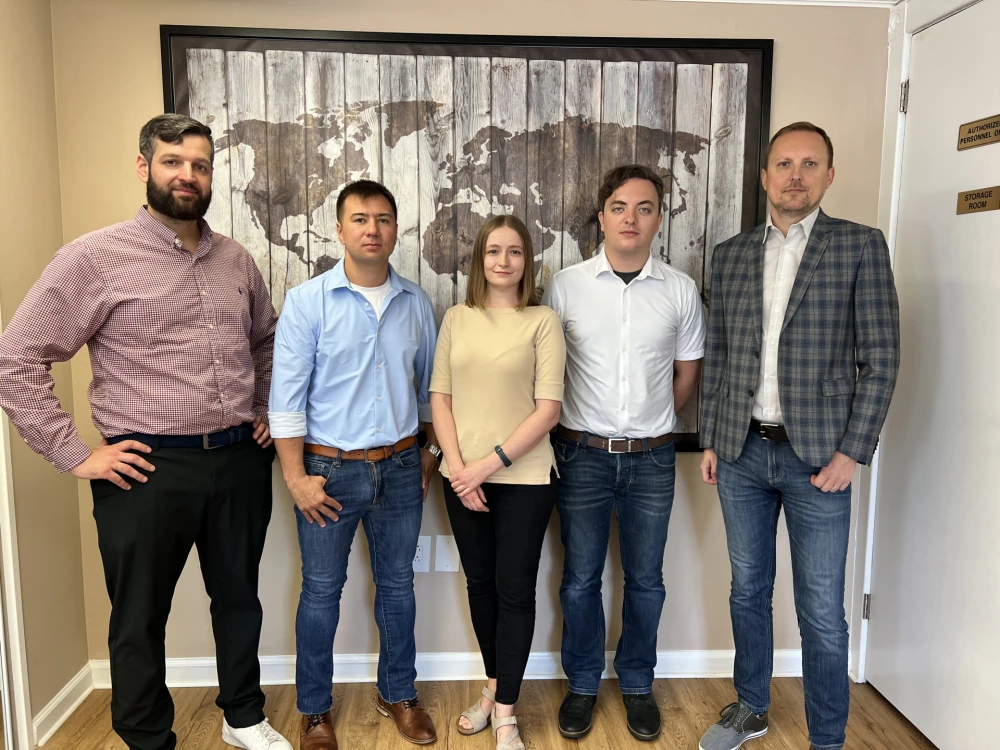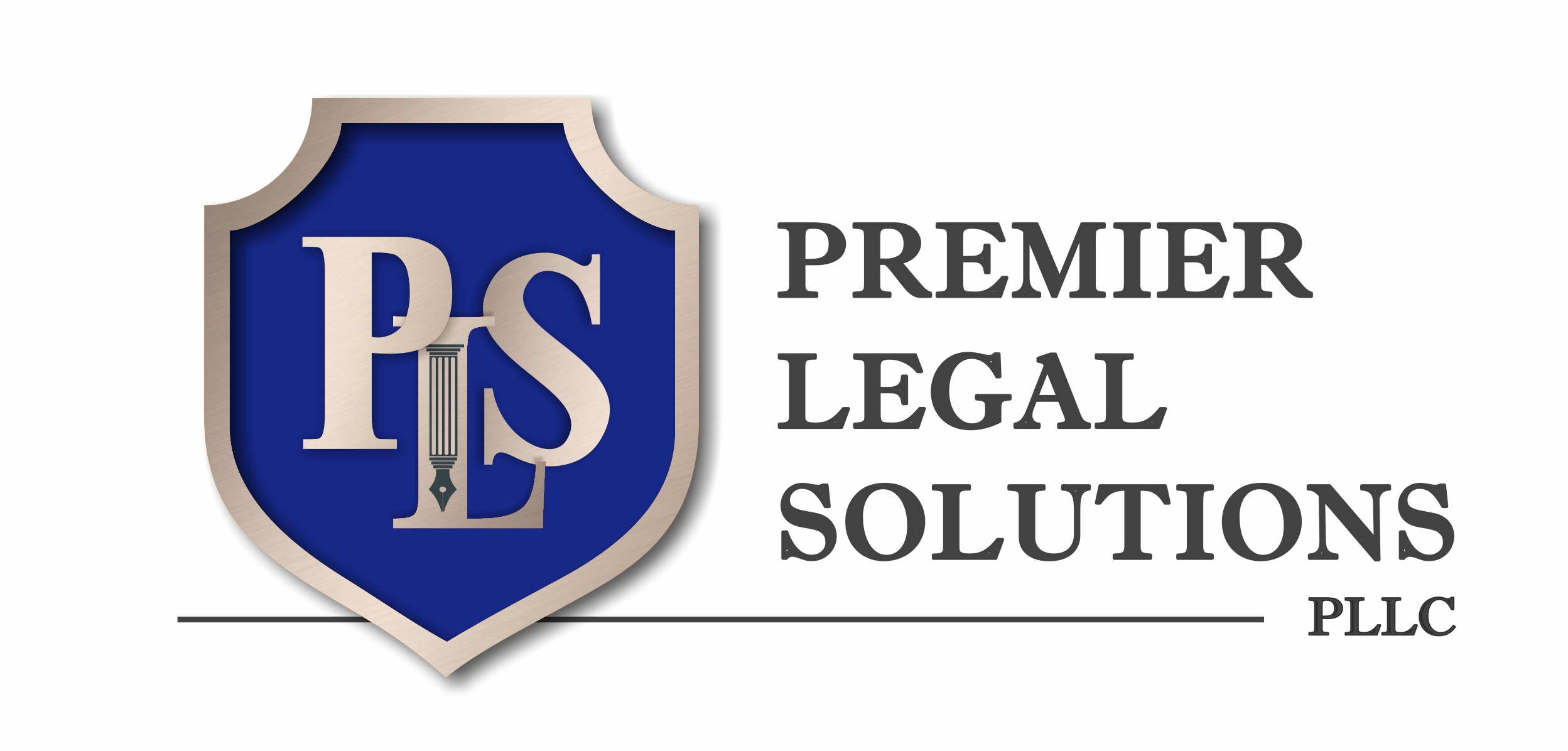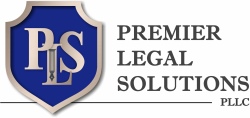Embark on opening CDL training school success with Premier Legal Solutions PLLC!
Master the Process with Our Legal Professionals: Launch Your Education Career Confidently
Our Legal Team is here to answer your questions
Book a consultation
Guidance for Securing
a CDL Training School License in Pennsylvania
Ensuring Instructor's Federal and State Background Check
Training providers must now undergo registration with FMCSA. Our attorney assists in this process, ensuring compliance with Federal and State truck driving mandates, including passing background checks, completing training programs and other necessary requirements.
Comprehensive Compliance Assistance
Understanding the critical role of CDL instructors, our team at Premier Legal Solutions offers specialized support in ensuring they meet all legal requirements. This includes verifying instructor qualifications, ensuring proper endorsements. We also assist in obtaining essential information about directors and CDL instructors.
Insurance and Surety Bond Support
Our CDL legal team facilitates the acquisition of surety bonds and ensures the presence of all necessary insurances. Rely on us for a seamless and compliant process.
Strategic Financial Document Support for CDL Training School
We understand the importance of accurate and comprehensive financial documentation for CDL Training School operations. Our legal team helps you with preparing, reviewing, and securing essential financial documents, including business plans and profit & loss statements. Our goal is to ensure these documents align with your business objectives and comply with regulatory standards.
Educational Documentation Support
Our team offers assistance in preparing and reviewing crucial educational documents such as catalogs, EAs, course curriculum, syllabus, certificates, test results and records.
Zoning and occupancy legal support
Trust our legal team, for zoning and occupancy certificate processes for your CDL Training School. We handle aspects as such from application preparation to liaising with local authorities.
CDL Compliance Check for Trucks and Equipment
Our team conducts thorough checks to ensure trucks and equipment meet mandatory Federal and State safety regulations. We verify the presence of necessary features and specifications, ensuring full compliance for commercial vehicles.
Legal Advocacy in CDL Board Meetings
Our legal team prepares you for CDL board meetings and advocates for your interests. With Premier Legal Solutions, you can approach these meetings with confidence, backed by a team dedicated to representing your best interests.
Get Your CDL School Licensed In Pennsylvania
Do you currently have a CDL training school? While the answer to this question seems simple, there is a lot to know and understand about operating a licensed CDL training school.
If you are a CDL training school, then you are required to be licensed by the Pennsylvania Private Licensed School Board subject to certain exceptions. The road to getting licensed is fraught with difficulty. You must complete two applications: the “New School” application and the “New Program” application, each of which must be completed by a specific deadline. This application is very long and complicated, requiring the applicant to submit a syllabus, curriculum, school catalog, enrollment agreement, several signed statements, a financial statement, and many other documents that must be completed meticulously and in accordance with Pennsylvania regulations. After the Pennsylvania Private Licensed School Board’s Department evaluates your application, your application may be referred to the Board itself for review. The Board will either approve, approve pending certain changes to be made by the school, defer to the next Board meeting, or deny the application completely. Depending on the decision rendered by the Board, the effect on the School’s course of action will differ.
If you are a CDL training school and are looking to get licensed in Pennsylvania so that you can operate a school, contact Premier Legal Solutions today to schedule a preliminary consultation.
Exception to Licensure
CDL training providers that work with a company to train the company’s employees do not need a license from the PA Department of Education to conduct business. If this is the lane your training facility is driving in, it is important to stay in this lane and only accept payment from the company that employs the individual being trained. Furthermore, the company employing the student cannot charge the student in any way for the training your CDL training provider has conducted. The training is a contract between the CDL training provider and the company.
If this scenario does not describe the lane you are in, it is time to slow down and get into the correct lane to avoid fines and other legal actions that can be imposed by the Pennsylvania Board of Private Licensed Schools.
FMCSA Regulations
As of February 7, 2022, all organizations offering training for entry-level driver training of commercial motor vehicles must be registered with the FMCSA and included in the Training Provider Registry. The recently implemented Entry-Level Driver Training (ELDT) regulations by the FMCSA stipulate that individuals pursuing a Class A or B CDL (or seeking an upgrade in these classes) must receive instruction from a provider listed on the TPR. Moreover, because the FMCSA also requires each training provider to follow all state regulations, it is important to note that the Commonwealth of Pennsylvania requires all ELDT providers to be licensed by the PA Board of Private Licensed Schools.
Registering with the FMCSA
Training providers must now complete registration with FMCSA to gain authorization for offering entry-level driver training of a commercial motor vehicle. By registering with the FMCSA, the training provider is required to confirm their compliance with relevant Federal and State commercial truck driving regulations. Your obligation to follow these regulations begins as soon as you register. FMCSA registration also lists your entity on the Training Provider Registry (TPR), an important tool that prospective students can use to locate a training provider. FMCSA TPR registration is required for both private and public training providers.
Developing a Curriculum
There are different pathways for how your school provides training. Reach out to us to discuss these options that include theory and behind-the-wheel. We can help you build each section of the curriculum to customize your school and keep it in compliance.
Instructors: Heroes of the Open Road!
For both theoretical and driving behind-the-wheel (BTW) instruction, instructors are required to possess a CDL of the same class (or higher). Additionally, they must qualify and satisfy one of the following criteria: either hold a minimum of two years' driving experience operating a CMV necessitating a CDL of the equivalent class and/or the same endorsement or possess a minimum of two years' driving experience as a BTW CMV instructor.
Facilities
All classroom and school facilities, including structures, properties, and buildings, must adhere to applicable federal, state, and local regulations. When referring to the "range", it denotes an open space with sufficient sight distance to enable truck drivers to maneuver without obstruction or risk. Education providers, driving school owners, and staff are permitted to conduct behind-the-wheel (BTW) range training in any location that meets the specified conditions, by purchasing or leasing a dedicated private facility. If range learning occurs in a publicly accessible space, all Commercial Learner's Permit (CLP) requirements are also applicable. Moreover, financial aspects such as tuition fees, marketing expenses, and financial considerations, including bank loans, should be taken into account in the overall training framework, considering various factors involved to ensure a comprehensive approach, particularly with respect to financial considerations.
Vehicles on the Road
Ensuring compliance with relevant federal and state safety regulations is imperative for all commercial and business vehicles, including tractor trailers. The motor vehicles used for school learning must match the intended group and type of vehicles for the driver-trainees' CDL skills test, and they must possess the required maintenance and insurance specifications outlined by regulations.
State Authorization
Training providers must understand that it is their responsibility to obtain the necessary licenses, certifications, registrations, permits, or authorizations from the relevant state where the training will be conducted. They must ensure compliance with state regulations to operate legally before commencing business operations.
In Pennsylvania, the process for obtaining the proper authority to operate a CDL school is overseen by the Pennsylvania Department of Transportation (PennDOT) and the Pennsylvania Department of Education/Board of Private Licensed Schools. The state government mandates that CDL training schools adhere to specific driving guidelines and meet stringent standards to obtain operational authorization. These standards encompass various aspects, including curriculum requirements, qualifications of driving instructors, vehicle standards, certificates of occupancy and zoning permits, proper insurance coverage agreements, ensuring comprehensive compliance with regulations. This proactive approach is crucial for mitigating potential risks for schools from the outset and ensuring no stops in training or findings of unlicensed activity.
One key aspect of Pennsylvania's CDL school licensing is the emphasis on instructor qualifications. CDL instructors need to have a valid Commercial Driver's License and a solid amount of hands-on driving experience. This ensures they're well-equipped to teach aspiring commercial drivers effectively. Instructors must also have a valid unexpired DOT physical med card with a current drug screening.
Training Provider Registry Reporting Requirements
All training certification details for each student must be reported to the Training Provider Registry within two business days after completing the learning. Additionally, the CDL class, endorsement, and type of completed training (e.g., theory or BTW) must be specified. The score on the written theory assessment and the total number of clock hours spent on behind-the-wheel learning should also be included towards the successful completion of training. The date of successful completion must be recorded.
Documentation and Record Keeping
All providers are required to keep specific records, which will need to encompass the below:
- Self-certifications from approved driver-trainees for behind-the-wheel (BTW) training, confirming their commitment to adhere to U.S. Department of Transportation regulations and relevant state/local laws regarding controlled substances, alcohol testing, age, medical certification, licensing, and driving history.
- A duplicate of the trainee's Commercial Learner's Permit (CLP) or Commercial Driver's License (CDL).
- Documentation confirming the qualifications of driving instructors.
- Comprehensive lesson plans for both theoretical and BTW (range and public road) training modules.
- Records detailing individual entry-level driver training assessments. All received records should be preserved for a minimum of three years.
This makes for a comprehensive and organized list of essential documentation to ensure regulatory compliance.
Maintaining Registration
Training Providers must promptly report any modifications within 30 business days and revise any registration to reflect any current alterations in essential details like: Name, address, contact number, and types of school training provided.
Contact Premier Legal Solutions LLC For Legal Advice Regarding CDL Training School Licensing
In Pennsylvania, obtaining a license from the respective authority for CDL school operations is a multi-step process that involves meeting stringent eligibility requirements, successfully building knowledge and skills curriculum with assessments, and adhering to strict regulations. You can ensure that operations at your school are conducted lawfully, safely, and effectively by seeking legal advice from our Attorneys. It is also advisable to register online and initiate the process at least three months before you intend to commence business operations. Ensure that you carefully follow all required steps and adjust your approach as necessary to meet specific regulatory demands. For comprehensive information on the entire process, contact our Attorney staff members and visit our website from the comfort of your home to gain a better understanding of these policies and protect your rights as outlined in them.
An attorney can provide guidance on properly completing FMCSA registration and being listed in the Training Provider Registry. Given the highly detailed regulations, it is prudent to have experienced legal counsel guidance on each step when becoming a CDL training provider as this will help avoid costly errors, unforeseen liability, overheads, and fees. Additionally, considerations regarding payments and related matters must be taken into account throughout the licensing process.
Premier Legal Solutions LLC provides thorough and experienced legal advice on all facets of CDL training school licensing. We aim to assist business owners and trucking company owners in navigating this legal route with confidence and simplicity and protect their rights. Contact our office at 267-245-0649 or email us at info@1lawyer.com to schedule a free consultation and take the first step in securing your school’s future. Our professional services are available to you, ready to guide you through the entire process, discuss and answer your questions, and provide required assistance. Visit our website on the internet or social media on X (formerly Twitter), Instagram, LinkedIn, and Facebook for more information and to explore how we can help you achieve your goals. Learn more about our services and hire us today.
The Brains Behind the Business
Your trusted law firm with a long-standing commitment to excellence
Trust in our dedication and proven track record to guide you through legal hurdles. We're committed to your success, paying careful attention to your legal matters. We're not just legal representation; we're your allies in forging a better tomorrow.

Streamlined Legal Consultations for Your Convenience
Right solutions for your unique situation
At PLS, we understand that legal issues can be complex and stressful to navigate. That's why our team of skilled legal professionals is committed to providing you legal services in practice areas including business law, tax law, immigration law and more. No matter the intricacy of your legal challenge, we are prepared to assist you diligently.

Why choose Premier Legal Solutions?
Every legal issue has a personal story behind it. At Premier Legal Solutions, we don't just focus on the law, but we also take time to understand your unique situation and make sure your concerns are addressed. Our goal is to make sure you feel taken care of. We know there's a human side to every case, so we look out for the person behind the papers. Your narrative matters to us.






